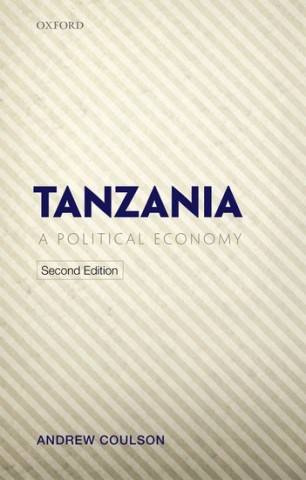Ohio University Press has a series of "Short Histories of Africa". I recently decided to pick up most of the collection for potential use as reading materials for classes. This post covers "Julius Nyerere" (2017), by Paul Bjerk. A few notes:
"Upon returning he was told he no longer had a job at St. Francis High School, as the colonial government had informed the Catholic leadership that they would not countenance a salaried teacher openly involved in oppositional politics." (p. 40)
"Kambona later recalled, "I found him sitting on the floor reading a book about Gandhi." (Throughout his career Nyerere continued to take yearly vacations in his home village during the rainy season, removing himself from Dar es Salaam politics while he took stock of himself and his country.)" (p. 41)
"During this year of upcountry travel, Nyerere ready book by Petro Itosi Marealle an old man from a chiefly family near Mount Kilimanjaro. The book presented a theory of rural African society that the author called ujamaa, meaning "familyhood." Nyerere first used this term in a speech on land policy a few months after his resignation. He began to develop Ujamaa into a comprehensive political ideology that combined African nationalism with his own unorthodox theory of harmonious socialism that rejected Marx's theory of class conflict. Nyerere envisioned African socialism as a social ethic derived from the shared responsibilities of family life in rural Africa." (p. 58-59)
"Nyerere had always been uncomfortable with the racial rhetoric surrounding Africanization policy and now for "localisation" of the civil service, meaning that the effort would be to hire and promote citizens of Tanganyika, regardless of their race, to replace the highly paid expatriates." (p. 64)
"When West Germany cut off military aid in protest of Tanzania's plan to host an East German consulate in Dar es Salaam, and enraged Nyerere told the West German ambassador to "take the rest of your aid as well." In 1965, Nyerere broke relations with Britain to protest its passive policy towards Southern Rhodesia's declaration of independence, which had made it easier for the white minority there to maintain its domination." (p. 80)
"A visiting IMF negotiator proposed to explain the package to the president personally. Mtei brought him to see Nyerere, who, after listening for a short while, abruptly got up and walked away. Nyerere said the IMF visitors had treated him with disdain and vowed that he would never allow his country to be run from Washington. They should go home, he told him Mtei. "I will devalue the shilling over my dead body." Nyerere felt that devaluation effectively stole money from his citizens' pockets to the benefit of foreign investors." (p. 119-120)
"When western representatives wanted to know more about the spiraling Congolese conflict, Nyerere berated them for their ignorance about their own countries' contribution to the conflict, especially since the United States had funded Mobutu's dictatorship. "You imposed and supported Mobutu for 32 years!" he told them. "We could not do anything. You know how bad Mobutu destroyed the country. This time leave us Africans to try and help Congo. The Congolese people have suffered a lot. Their blood is our blood. Please leave us alone this time."" (p. 140)



